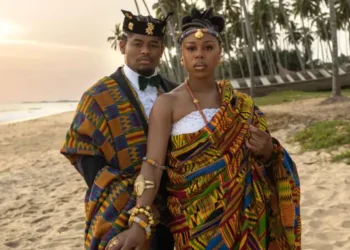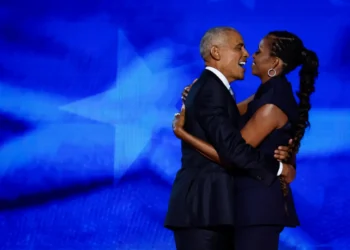Let’s discuss the rape symbolism regarding the Nate Parker story, shall we?
Here, we have a Black man who would be viewed as powerful by the bulk of the Black community due to his accomplishments.
He is the perfect catch, isn’t he? Conventionally attractive, college educated, married, successful, and financially well off.
The Black community yearns for this type of Black male representation, and they will go to great lengths to maintain this limited access to a privilege that is generally lacking in the Black community despite the few exceptions.
So how far would the Black community go to maintain a powerful image of the Black man? Just how secure is this unconditional protection of the Black man that this community has built on the backs of Black women and other marginalized groups within?
Nate Parker has been exposed for raping a woman with the accompaniment of his friend while the woman was intoxicated and unconscious. The transcripts of a phone conversation between Parker and the woman reveal that she had hardly any memory of the assault, and Parker had made attempts to convince her that the assault was consensual.
The victim ultimately committed suicide, and with the release of the new movie “Birth of a Nation” starring Nate Parker, there are critics fleeing to the rape story demanding answers and even showing outrage to the point of not supporting Nate Parker’s movie success.
So what is the argument taking place within the Black community?
As expected, due to the privilege that is granted to Black men simply for being male, a great bit of the Black community supports Nate Parker despite his rape case.
Their arguments are as followed:
1. “But come on now, you guys. White supremacy, right? They’re always trying to hold the Black man down!”
While White privilege exists and has history upon history as evidence, it is dishonest to attribute a Black man’s heinous sexual violence to racial oppression.
The Black community robs the Black man of any opportunity at being held accountable by using racial oppression as an excuse. Nate Parker’s own actions are being brought to the light just as any sex offender’s actions should be.
The Black community has managed to construct this illusion in which any time a Black man, especially one with prestige, is guilty of a criminal act, it must be some sort of conspiracy that only exists to “distract” the masses from this Black man’s accomplishments. Somehow it is never factored in that the man would need to have committed an act for it to be used as a “distraction” in the first place.
Does anyone notice a coincidence? This was the same argument presented by the Black community when Bill Cosby was being held accountable for rape. I believe their conclusion was that Bill Cosby was being conspired against “because he was going to buy NBC”. Apparently a simple “No, Cosby. You may not buy NBC.” would not have sufficed.
2. “He was acquitted in court! The guy was innocent!”
This one is interesting for a reason that is ironic and quite contradictory. This is a quote from the same Black community that watched the verdict of George Zimmerman in the Trayvon Martin case, and their exact words were, “The court system is corrupt!”
The Black community desires to have it both ways. When the court system works in their favor, like when their favorite Black men are set free from rape charges, they all of a sudden have a fond trust in the court system. They do not make room for doubt, and they especially do not create space for rape victims. However; when a Black man does receive justice for a crime he committed or when a Black man is a victim of racially motivated hate crime, the Black community suddenly puts all their faith in the word of the Black man and the court system becomes this totally prejudicial and inequitable process.
Nate Parker was acquitted based on the court’s knowledge that he had consensual sex with the victim prior to the sexual assault.
This is one of the many flaws that exists within rape culture. It demonstrates how lightly consent is considered in court, to the point that as long as there might have been somewhere where the least bit of consent was involved, then any sexual violence thereafter is not remarkable enough for a review.
3. “Relax! At least it was a White woman!”
There goes that irony again. Not only is it repulsive that the Black community has managed to justify a rape crime on the basis of the victim’s race, but it is not uncommon for Black men to uplift White women, especially at the expense of Black women. In any other event, it is not unusual to witness Black men glorifying White women and positioning them as the standard for beauty, femininity, and an all-around better example of womanhood than the Black women in their own community.
On a regular day, it is not abnormal to hear “White women are much greater than Black women”, from the mouths of Black men.
The circumstance is different in a scenario like this. Then they will remind us that it’s “just a White woman” and that we must “focus on our own community” instead of “coming to their defense”.
Except those in the Black community that opposes Nate Parker do not oppose in order to come to the defense of Whiteness. We oppose to set a standard that prohibits rape of any human being.
So how do Black women, especially Black female rape victims, feel about this?
Surely there are many Black women who still support Nate Parker. This can be accredited to “Stockholm Syndrome”.
However; then you have the Black women who are seeking justice for all rape victims.
More than half of Black women have been sexually assaulted before age 18.
With sexual assault numbers in the Black community being this high, you can probably infer why cases like this are so personal to Black women. You can even rationalize why Black women may be triggered by this particular case and further convinced that the Black community is not choosing to be active against rape culture.
The truth is that Nate Parker’s story represents the acceptance of rape culture and male privilege in the Black community by their sick strategy to protect dangerous Black men, which continues to leave a veil over the traumatic sexual experiences Black women and girls have endured.
It also reveals the general acceptance of rape culture in the court system and within all racial backgrounds, especially against women and girls.












